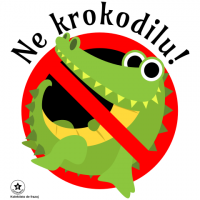Postitused: 42
Keel: English
nornen (Näita profiili) 19. oktoober 2019 17:58.07
Zam_franca (Näita profiili) 19. oktoober 2019 18:52.30
Anstataŭ-a estas tamen prononcebla. MMLA, vi estas anglalingvano, tial kial vi ne diris aŭa kiel "-ow" en kelkaj anglalingvaj vortoj?
MiMalamasLaAnglan (Näita profiili) 20. oktoober 2019 14:39.06
nornen:I'd think that if a word that is truly impossible, then everyone would agree about that and there would not be a need for someone to be in charge of choosing whether a word is pronounceable.
Who would be in charge to decide whether a word is impossible to pronounce or not?
Zam_franca:La akademio.-aŭ ja estas kiel angla -ow (ekz. "how"), ĉu ne?
Anstataŭ-a estas tamen prononcebla. MMLA, vi estas anglalingvano, tial kial vi ne diris aŭa kiel "-ow" en kelkaj anglalingvaj vortoj?
nornen (Näita profiili) 20. oktoober 2019 16:57.34
MiMalamasLaAnglan:I am just saying, that "pronouncable" depends a lot on your mother tongue. For a Czech "strč prst skrz krk" is perfectly pronouncable, but would you also deem it so? Would a Spanish or a Japanese speaker?nornen:I'd think that if a word that is truly impossible, then everyone would agree about that and there would not be a need for someone to be in charge of choosing whether a word is pronounceable.
Who would be in charge to decide whether a word is impossible to pronounce or not?
Introducing ŭ in the onset of syllables would not only introduce a new phoneme into Esperanto, it would also screw up the phonotactics a bit.
The grapheme < j > can appear both on the left and the right side of the nucleus:
1) jes [jɛs]
2) tuj [tʊɪ̯]
When we add a vowel to (2), the < j > jumps to the next syllable:
3) tuja ['tʊ.ja]
The < ŭ > can only appear on the right side, and does not jump to the next syllable, because it is not a valid onset.
4) morgaŭ ['mɔr.gaʊ̯]
5) morgaŭa [mɔr.'gaʊ̯.a], not *[mɔr.'ga.wa]
If we now introduce left-side < ŭ > for /w/, the pronounciation of (5) would change, because < ŭ > would be indeed a valid onset.
6) ŭesto ['wɛs.tɔ]
7) morgaŭa [mɔr.'ga.wa]
In my opinion, this would be unfortunate.
I think, that accepting this whole kerfuffle, just because "okcidenta" isn't a nice word, is overkill. Why not simple borrow a word for west from a language, where it doesn't start with /w/? From German "Westen" ['vɛs.t(ə)n] as "vesteno", from Russian "запад" ['za.pət] as "zapado", from Mandarin 西方 [ɕi⁵⁵ fɑŋ⁵⁵] as "ŝifango", from Q'eqchi' "rokeb'l saq'e" [ro.kepʼl̥.sa.'qʼe] as "rokeplo", ...
But this would break the nice symmetry between "oriento" (< sole oriente = je suno supreniranta) kaj "okcidento" (< sole occidente = je suno subeniranta).
thyrolf (Näita profiili) 21. oktoober 2019 9:08.12
Metsis (Näita profiili) 21. oktoober 2019 12:20.55
OP asked about "left". I'm to be blamed for taking up some superfluaj vortoj like liva, ovri and ŭesto. I see some contexts, where these could be better than the normative words, see the first page of this thread. Personally I prefer to read "John Wayne rajdas en ŭesteskajn filmoj" anstataŭ "John Wayne rajdas en okcidenteskaj filmoj". However I admit, that the expression "John Wayne rajdas en rokepleskaj filmoj" has a certain appeal

MiMalamasLaAnglan (Näita profiili) 21. oktoober 2019 14:40.21
Metsis:Thyrolf,What is the difference between "ovri" and "aperti"? Also, how come the opposite words for "juna" and "nova" are the same ("olda"), according to Vikipedio?
OP asked about "left". I'm to be blamed for taking up some superfluaj vortoj like liva, ovri and ŭesto. I see some contexts, where these could be better than the normative words, see the first page of this thread. Personally I prefer to read "John Wayne rajdas en ŭesteskajn filmoj" anstataŭ "John Wayne rajdas en okcidenteskaj filmoj". However I admit, that the expression "John Wayne rajdas en rokepleskaj filmoj" has a certain appeal
thyrolf (Näita profiili) 21. oktoober 2019 15:31.35
hä? kio? rokepleska?
John Wayne rajdas ein vakeraj filmoj?
nornen (Näita profiili) 21. oktoober 2019 15:38.00
Metsis (Näita profiili) 22. oktoober 2019 10:07.18
MiMalamasLaAnglan:The root ovr/ has a verb-like character, so ovri corresponds directly to malfermi, i.e. to open.
What is the difference between "ovri" and "aperti"? Also, how come the opposite words for "juna" and "nova" are the same ("olda"), according to Vikipedio?
The root apert/ has an adjective like character, so the basic meaning is aperta "ne kovrita, ne fermita, libere alirebla". For instance aperta kunveno, open meeting. i.e. not closed for public. From that root you can make a verb aperti, which means "esti en aperta stato".
PIV gives for olda only the meaning maljuna, but there are languages which use the same for maljuna and malnova, like "old" in English




